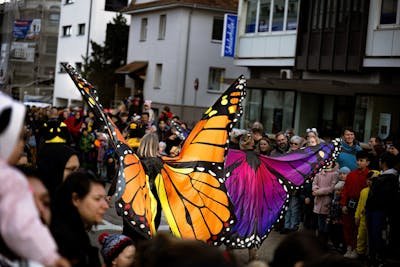Katherine Oppenheimer, often overshadowed by her husband J. Robert Oppenheimer, was a remarkable woman in her own right. She played a significant role in the life of one of the most influential figures in science. Katherine was not just a supportive spouse; she was an accomplished individual who contributed to various fields, including education and the arts. In this article, we will explore her life, her contributions, and her lasting impact.
Early Life and Education
Katherine Oppenheimer was born on April 8, 1910, in Los Angeles, California. She was raised in a cultured environment that emphasized education and the arts. Her father was a successful businessman, and her mother was a teacher who valued learning. Growing up, Katherine showed an early interest in music and literature, which would shape her future.
- Academic Pursuits: Katherine attended the University of California, Berkeley, where she studied literature and languages. She was known for her intelligence and passion for learning. Her education allowed her to develop a deep appreciation for the arts and humanities.
- Meeting Robert Oppenheimer: During her time at Berkeley, Katherine met Robert Oppenheimer, a brilliant physicist who would later become known as the “father of the atomic bomb.” Their meeting was a turning point in her life, leading to a marriage that would intertwine their personal and professional lives.
Katherine’s academic background and cultural upbringing set the foundation for her later contributions, both as an individual and as Robert’s partner.
Marriage and Family Life
Katherine and Robert Oppenheimer married in 1936, and their partnership was marked by mutual respect and shared interests. They had two children together: a son, Peter, and a daughter, Katherine, who they lovingly called “Toni.”
- Supportive Partner: Throughout Robert’s career, Katherine played a crucial role in supporting him. She understood the demands of his work and was there to offer emotional support during the challenging times. This support was especially vital during World War II when Robert led the Manhattan Project.
- Balancing Family and Career: Katherine managed to balance her family life with her own interests and pursuits. She was involved in her children’s education and took an active role in their upbringing. This balancing act showcased her dedication to both her family and her personal passions.
Katherine’s marriage to Robert Oppenheimer was not just a union of two people; it was a partnership that highlighted the importance of support and understanding in a relationship.
Contributions to Education and the Arts
Katherine Oppenheimer was not only a devoted wife and mother but also a talented individual with a passion for education and the arts.
- Teaching Career: After completing her education, Katherine became a teacher. She worked at various institutions, sharing her love for literature and the arts with her students. Her teaching style was known for being engaging and inspiring, encouraging students to explore their creativity.
- Support for Arts: Katherine was deeply involved in the arts community. She often organized cultural events and supported local artists. Her commitment to the arts was evident in her efforts to promote creativity and expression in her community.
Through her contributions to education and the arts, Katherine made a lasting impact on those around her. She believed in the power of knowledge and creativity to shape individuals and society.
The Impact of the Manhattan Project
Katherine Oppenheimer’s life changed dramatically when her husband was appointed the scientific director of the Manhattan Project during World War II. This secret project aimed to develop the first nuclear weapons.
- Living in Uncertainty: As Robert worked on this groundbreaking project, Katherine faced the challenges of being a military wife. She often lived in uncertainty, knowing that her husband was involved in a project that could change the course of history. The pressure of this time weighed heavily on their family.
- Advocating for Peace: Katherine was deeply concerned about the implications of nuclear weapons. After the war, she became an advocate for peace and disarmament. She believed that the world should learn from the past and work towards a more peaceful future.
Katherine’s experiences during the Manhattan Project shaped her views on science and ethics. She recognized the importance of balancing scientific advancement with moral responsibility.
Later Life and Legacy
After the war, Katherine Oppenheimer continued to contribute to society through her work and advocacy. She remained active in various cultural and educational initiatives.
- Public Engagement: Katherine often participated in public discussions about science, ethics, and the role of scientists in society. Her insights were valued, as she had a unique perspective on the impact of scientific advancements on humanity.
- Enduring Influence: Katherine’s legacy is one of strength, resilience, and commitment to education and the arts. She left an indelible mark on her community and inspired future generations to pursue knowledge and creativity.
Today, Katherine Oppenheimer is recognized as a significant figure in her own right. Her life serves as a reminder that behind every great man is often a great woman, whose contributions may go unnoticed but are vital to their success.
Conclusion
In conclusion, Katherine Oppenheimer was much more than just the wife of Robert Oppenheimer. She was an accomplished individual who made significant contributions to education and the arts. Her life was marked by challenges and triumphs, particularly during the tumultuous times of the Manhattan Project. Katherine’s legacy continues to inspire others to pursue knowledge, creativity, and a commitment to making the world a better place.
Understanding Katherine Oppenheimer’s story allows us to appreciate the importance of recognizing women’s contributions in history. Her life teaches us that support, love, and dedication can make a profound difference in the world, and that every individual’s story deserves to be told.
FAQs
Q: Who was Katherine Oppenheimer?
A: Katherine Oppenheimer was the wife of physicist Robert Oppenheimer, known for her contributions to education and the arts.
Q: What did Katherine do during the Manhattan Project?
A: Katherine supported her husband during the project and later became an advocate for peace and disarmament.
Q: How did Katherine contribute to education?
A: She was a teacher who inspired her students through her passion for literature and the arts.
Q: What was Katherine’s impact on the arts?
A: She organized cultural events and supported local artists, promoting creativity in her community.
Q: Why is Katherine Oppenheimer’s story important?
A: Her story highlights the significant but often overlooked contributions of women in history, showcasing their strength and influence.






















